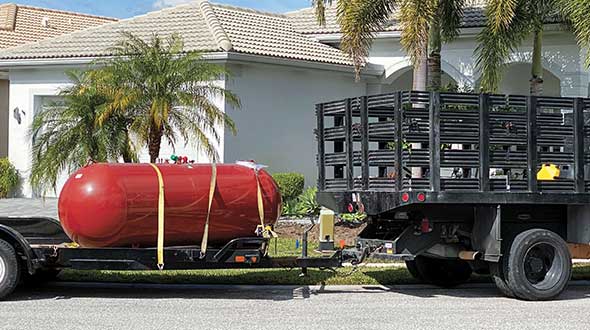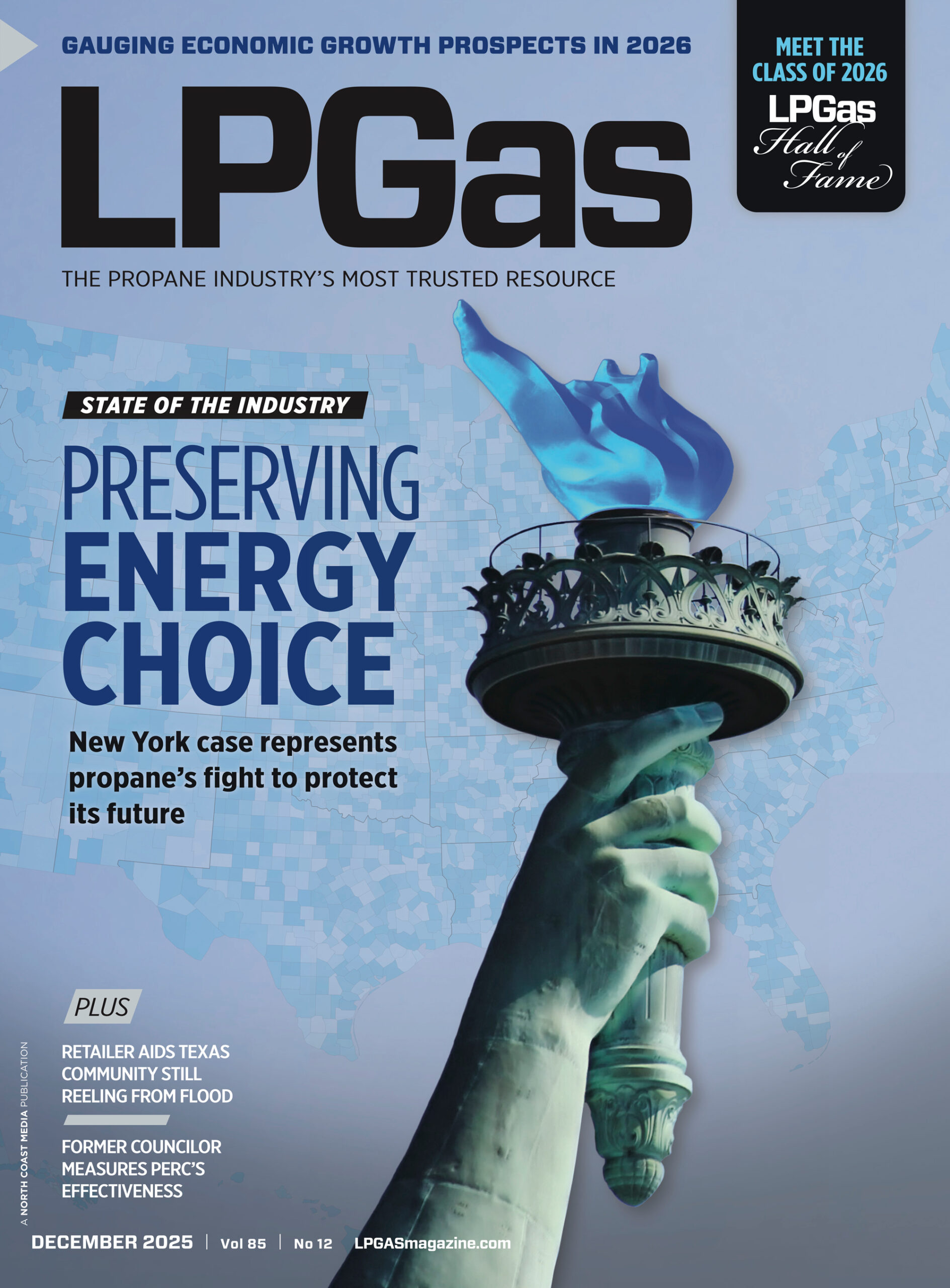Details of Virginia case serve as serious reminder
On July 21, a Virginia jury convicted a service manager of a local propane company of involuntary manslaughter, a felony, and three additional misdemeanors related to the improper handling of hazardous materials. He is facing up to 13 years in prison.

The incident that led to this criminal conviction occurred on Feb. 16, 2024, at a private residence in Sterling, Virginia. The homeowner had an underground 500-gallon propane tank that serviced a heated pool. There were no gas-fed appliances in the home.
It is alleged in a civil lawsuit that the tank had been red-tagged prior to Feb. 16, 2024, the date of the explosion. It is claimed that the propane delivery driver did not know the tank had been red-tagged and put approximately 125-130 gallons of propane into the tank. He immediately began to smell a strong odor associated with a propane leak.
It is alleged that the propane company performed a leak check of the tank sometime prior to Feb. 16, 2024, and found a leak, meaning the tank was unsafe to use until the leak was fixed. The company disconnected the gas line to the tank and put a POL lock on the tank.
There had been a prearranged meeting between the homeowner and the propane company set for Feb. 22, 2024.
On Feb. 16, 2024, the delivery driver arrived to fill the home’s tank. At the home, the driver smelled gas and asked the homeowner if she had any issues with her gas system. She was confused that someone was there early, so she called the propane company. A manager at the company told the homeowner it was all good, saying: “We fill it up to troubleshoot it for next week.” She was told a technician was on the way to investigate the gas smell. And she was told, “You’re not smelling propane; you’re smelling the chemical to let you know it is leaking.” She was told everything was fine.
When the service technician arrived later that day, he inspected the system and confirmed the tank was leaking. The tank was still unhooked from the gas line and still had a POL lock. He did not check inside the home for gas. In response to a question from the homeowner, he said he could not dig up the tank because it was not an emergency. The team that could remove the tank had already gone home for the day, and the earliest he could have a team there to dig up the tank was three days later.
He did not tell her to leave the home. He did not tell her not to light anything. She asked if she should call the fire department. She was advised not to do so.
She was told that she would lose all of her propane as it leaked into the ground from the leaking tank. He is quoted as saying: “We’ll just let it ease out into the ground; we’ll all be on our merry way. Unfortunately, you’re going to lose 129 gallons of gas; that’s the sad part.”
A 911 call came into the local fire department from the home next door reporting a propane gas odor. Within 18 minutes of receiving that call, the fire department had located the leak at the underground tank. At the direction of the fire department, she called the service technician who had been out to the home earlier. The fire department described the serious nature of the leak to the tech. The tech responded, “Respectfully, sir, I know you’re doing your job, but I have been doing this for a long time, and I do not feel it is an emergency.” It appears he did not come to the scene.
The fire department then set out to investigate the location of the leak and evacuate people from the home. Roughly 30 minutes following the call with the tech, the house exploded. A fireman died, another 12 firefighters were injured, the homeowner and her tenant were injured, the home was leveled and several surrounding homes were damaged or destroyed.
Plaintiffs are seeking $100 million in this case. Firefighters generally cannot sue for injuries they receive responding to emergencies unless it is alleged that the conduct is willful, wanton or represents gross negligence. It is alleged these acts constitute just that.
The moral here: All reported leaks need to be taken seriously.
John V. McCoy is with McCoy, Leavitt, Laskey LLC. His firm represents industry members nationally. He can be reached at jmccoy@MLLlaw.com or at 262-522-7007.
Featured homepage image: izzetugutmen/iStock/Getty Images Plus/Getty Images
















